15 Things You Didn’t Know About Your Heart
Nathan Johnson
Published
08/21/2015
You never really think about your heart until it messes up on you
- List View
- Player View
- Grid View
Advertisement
-
1.
 Your Heart Generates Electricity With Salt. It's not quite that simple, but in some ways it is. Electricity from the Sinoatrial node acts as a natural pacemaker, initiating the process of the heart beating. You're not plugged into anything, so where does the juice come from? Electrolytes like sodium, potassium, magnesium, and others build up in the Sinoatrial node and generate chemical reactions. Not unlike a battery, these electrolytes store up and discharge the impulses at will.
Your Heart Generates Electricity With Salt. It's not quite that simple, but in some ways it is. Electricity from the Sinoatrial node acts as a natural pacemaker, initiating the process of the heart beating. You're not plugged into anything, so where does the juice come from? Electrolytes like sodium, potassium, magnesium, and others build up in the Sinoatrial node and generate chemical reactions. Not unlike a battery, these electrolytes store up and discharge the impulses at will. -
2.
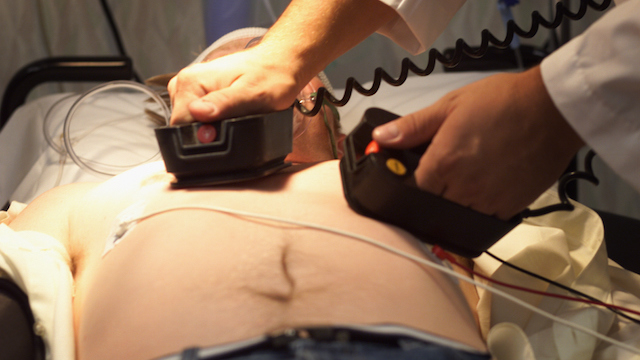 Almost Everything You See On TV About Defibrillators Is Total Bullcrap. A defibrillator is not there to kick start your heart. No matter what you see on TV, the "He's flatlining! CLEAR!!" thing is a total lie. Defibrillation is like pressing the reset button on your heart. If the heart isn't beating, electricity won't do anything. When doctors or EMTs have to defibrillate a patient, it's because the heart is beating all crazy and needs restarting. There's no violent jerk of the patient (they hardly move). What is true is the part where EMTs say "Clear!", except they don't scream it. They calmly say "I'm clear, you're clear, we're clear." They're calm because EMTs are stone cold pimps and never freak out at anything.
Almost Everything You See On TV About Defibrillators Is Total Bullcrap. A defibrillator is not there to kick start your heart. No matter what you see on TV, the "He's flatlining! CLEAR!!" thing is a total lie. Defibrillation is like pressing the reset button on your heart. If the heart isn't beating, electricity won't do anything. When doctors or EMTs have to defibrillate a patient, it's because the heart is beating all crazy and needs restarting. There's no violent jerk of the patient (they hardly move). What is true is the part where EMTs say "Clear!", except they don't scream it. They calmly say "I'm clear, you're clear, we're clear." They're calm because EMTs are stone cold pimps and never freak out at anything. -
3.
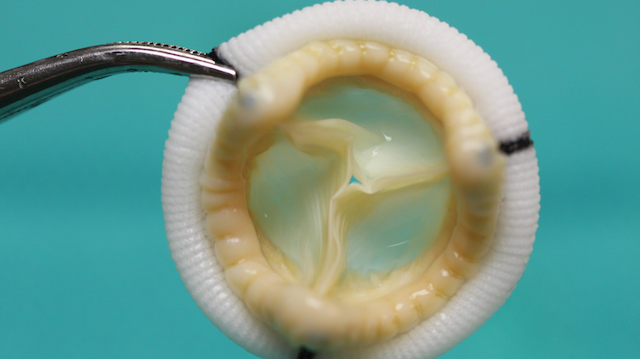 Need A Heart Valve Replacement? It's Likely Coming From A Pig. While it would sort of make sense to get heart valves from a chimpanzee or even another person, for some reason pig heart valves just do the trick. They have a super-low incidence of rejection, and they tend to be pretty heavy duty. The cool thing is the valves like the one pictured here, from scientists at Clemson University. They're growing the things using cells from pig hearts, so they can mass produce them and not kill pigs. Science!
Need A Heart Valve Replacement? It's Likely Coming From A Pig. While it would sort of make sense to get heart valves from a chimpanzee or even another person, for some reason pig heart valves just do the trick. They have a super-low incidence of rejection, and they tend to be pretty heavy duty. The cool thing is the valves like the one pictured here, from scientists at Clemson University. They're growing the things using cells from pig hearts, so they can mass produce them and not kill pigs. Science! -
4.
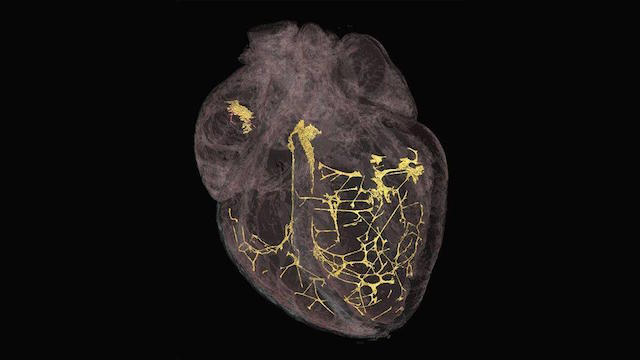 How Electricity Gets Across Your Heart Makes No Sense. The Sinoatrial node is where the electricity comes from, and then it hits the right atrium. How does it get from one side of the heart to the rest? If you know, you may want to let your nearest scientist know, because they don't understand it. It ends up working, and things work, but the radial pattern the electrical impulses make is something medicine can't explain.
How Electricity Gets Across Your Heart Makes No Sense. The Sinoatrial node is where the electricity comes from, and then it hits the right atrium. How does it get from one side of the heart to the rest? If you know, you may want to let your nearest scientist know, because they don't understand it. It ends up working, and things work, but the radial pattern the electrical impulses make is something medicine can't explain. -
5.
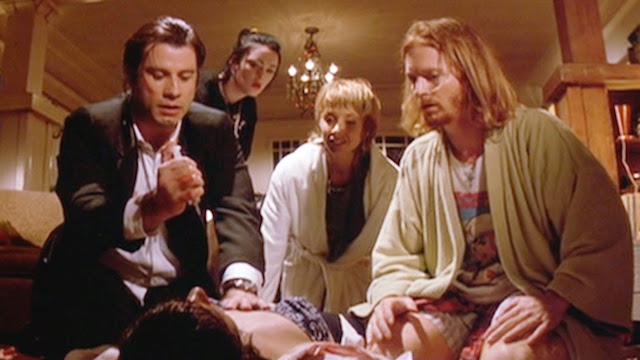 Adrenaline Shots To The Heart Are Not A Thing. If a doctor or John Travolta stuck a needle in your heart -- you'd probably die. It could be done, but as one doctor said "There's better ways to get medicine to your heart." Puncturing the heart is a roll of the dice you really don't want to take. Doctors also don't inject adrenaline, they use Epinephrine -- a different neurotransmitter. In the cases where Epinephrine is needed, you don't just stab Mia and she snaps out of it like that. You'd inject somewhere else, as well as defibrillate, compress, and some doctor/paramedic stuff.
Adrenaline Shots To The Heart Are Not A Thing. If a doctor or John Travolta stuck a needle in your heart -- you'd probably die. It could be done, but as one doctor said "There's better ways to get medicine to your heart." Puncturing the heart is a roll of the dice you really don't want to take. Doctors also don't inject adrenaline, they use Epinephrine -- a different neurotransmitter. In the cases where Epinephrine is needed, you don't just stab Mia and she snaps out of it like that. You'd inject somewhere else, as well as defibrillate, compress, and some doctor/paramedic stuff. -
6.
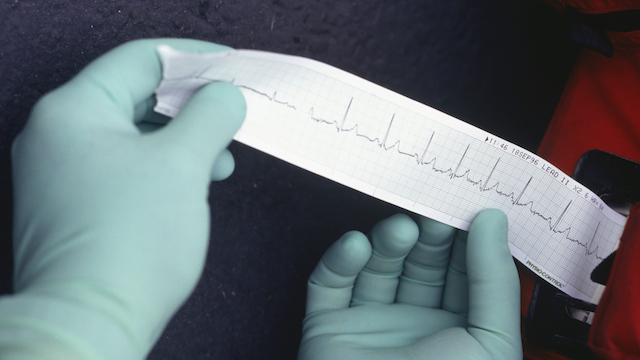 A Ton Of People Live Their Entire Lives With A Heart Murmur And Have No Idea. There are two kinds of heart murmurs -- innocent and abnormal. Take a stab at which one you should worry about. An innocent murmur often happens in people that have no idea it's there and it affects nothing. Sometimes they come and go, and sometimes it's just more of you to love. Certain types of click murmurs end up being nothing more than a curiosity and something neat to mention at parties. Unless you're a doctor, self diagnosing your supposed murmur is a completely idiotic idea and you should have that looked at.
A Ton Of People Live Their Entire Lives With A Heart Murmur And Have No Idea. There are two kinds of heart murmurs -- innocent and abnormal. Take a stab at which one you should worry about. An innocent murmur often happens in people that have no idea it's there and it affects nothing. Sometimes they come and go, and sometimes it's just more of you to love. Certain types of click murmurs end up being nothing more than a curiosity and something neat to mention at parties. Unless you're a doctor, self diagnosing your supposed murmur is a completely idiotic idea and you should have that looked at. -
7.
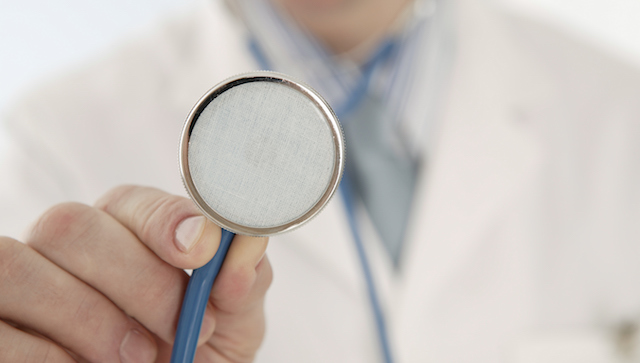 The Grand Majority Of Heart Disease Cases Are Completely Preventable. Heart disease is still the leading cause of death in the US -- claiming the lives of 611,105 people in 2013. It frustrates doctors sometimes, because the CDC estimates 90% of the cases are due to absolutely preventable circumstances. Putting out the cigarettes, throttling back on the deep fried twinkies, not sweating the small stuff, and maybe hitting a treadmill once in a while -- all of these things can keep you from dying. Just leaving that right there.
The Grand Majority Of Heart Disease Cases Are Completely Preventable. Heart disease is still the leading cause of death in the US -- claiming the lives of 611,105 people in 2013. It frustrates doctors sometimes, because the CDC estimates 90% of the cases are due to absolutely preventable circumstances. Putting out the cigarettes, throttling back on the deep fried twinkies, not sweating the small stuff, and maybe hitting a treadmill once in a while -- all of these things can keep you from dying. Just leaving that right there. -
8.
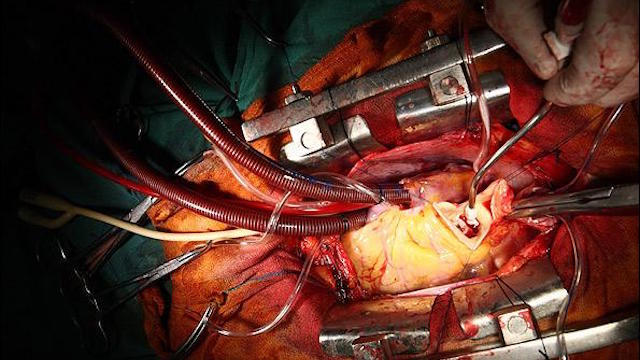 Open Heart Surgery Has Been A Thing Way Longer Than You'd Expect. First of all, you should know that open-heart surgery is frickin insane. If you've never watched it get done before, fire up a video of it or something. It'll blow your mind. However, the first successful heart surgery was performed in 1896. Dr. Ludwig Rehn of Germany cracked open a guy's chest and patched up a stab wound to the heart. The first heart valve procedure happened in 1925 when Dr. Henry Souttar fixed a mitral stenosis.
Open Heart Surgery Has Been A Thing Way Longer Than You'd Expect. First of all, you should know that open-heart surgery is frickin insane. If you've never watched it get done before, fire up a video of it or something. It'll blow your mind. However, the first successful heart surgery was performed in 1896. Dr. Ludwig Rehn of Germany cracked open a guy's chest and patched up a stab wound to the heart. The first heart valve procedure happened in 1925 when Dr. Henry Souttar fixed a mitral stenosis. -
9.
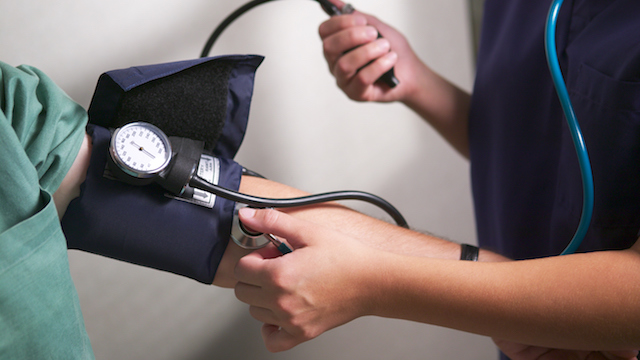 The Numbers On Your Blood Pressure Actually Stand For Something Pretty Simple. It happens to all of us. Doc says "You're at 120 over 80." and we all ask the same thing -- "Is that good?" The numbers actually stand for how hard the blood is pushing against the walls of your blood vessels during both pumping and relaxing. The first one is the pushing pressure, the second is between pumps. The unit of measurement however -- "millimeters of mercury" -- is why you don't understand what your doctor is telling you.
The Numbers On Your Blood Pressure Actually Stand For Something Pretty Simple. It happens to all of us. Doc says "You're at 120 over 80." and we all ask the same thing -- "Is that good?" The numbers actually stand for how hard the blood is pushing against the walls of your blood vessels during both pumping and relaxing. The first one is the pushing pressure, the second is between pumps. The unit of measurement however -- "millimeters of mercury" -- is why you don't understand what your doctor is telling you. -
10.
 Your Heart Pumps Enough Blood In Your Lifetime To Fill Two Of These Suckers. That's a TI Class Super Tanker. It's an oil ship that is the largest boat on Earth. It can carry 132,986,826 gallons of oil at a time. Your heart pumps about 2,000 gallons of bleed juice a day. Crunch the numbers and you'll see that over an average lifetime, you pump just shy of enough blood to fill a TI Class Super Tanker... twice.
Your Heart Pumps Enough Blood In Your Lifetime To Fill Two Of These Suckers. That's a TI Class Super Tanker. It's an oil ship that is the largest boat on Earth. It can carry 132,986,826 gallons of oil at a time. Your heart pumps about 2,000 gallons of bleed juice a day. Crunch the numbers and you'll see that over an average lifetime, you pump just shy of enough blood to fill a TI Class Super Tanker... twice. -
11.
 Endurance Athletes Have Bigger Hearts. Your heart is a muscle, and exercise will build that muscle like any other. Endurance athletes like marathon runners and cyclists have been known to increase the size of their hearts by up to 40%. It's the same idea as doing a lot of curls to get bigger biceps. Work your heart harder, and it's going to get ripped like anything else. This is why you date an endurance athlete -- they literally have big hearts.
Endurance Athletes Have Bigger Hearts. Your heart is a muscle, and exercise will build that muscle like any other. Endurance athletes like marathon runners and cyclists have been known to increase the size of their hearts by up to 40%. It's the same idea as doing a lot of curls to get bigger biceps. Work your heart harder, and it's going to get ripped like anything else. This is why you date an endurance athlete -- they literally have big hearts. -
12.
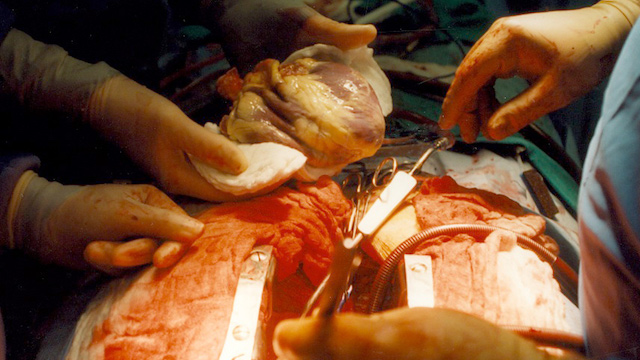 California Is The World's Capital Of Heart Transplants. Of the approximately 3,500 heart transplants performed a year worldwide, Cedars-Sinai Medical Center in Los Angeles is by far the capital. In 2013 they performed 119 of the 2,000 heart transplants nationwide that year. Contrary to popular belief, a heart transplant is not a permanent solution and patients are expected to survive only about 15 years following the procedure. According to a study from Johns Hopkins, a man receiving a man's heart has a 15% increase in risk of mortality for reasons completely unknown.
California Is The World's Capital Of Heart Transplants. Of the approximately 3,500 heart transplants performed a year worldwide, Cedars-Sinai Medical Center in Los Angeles is by far the capital. In 2013 they performed 119 of the 2,000 heart transplants nationwide that year. Contrary to popular belief, a heart transplant is not a permanent solution and patients are expected to survive only about 15 years following the procedure. According to a study from Johns Hopkins, a man receiving a man's heart has a 15% increase in risk of mortality for reasons completely unknown. -
13.
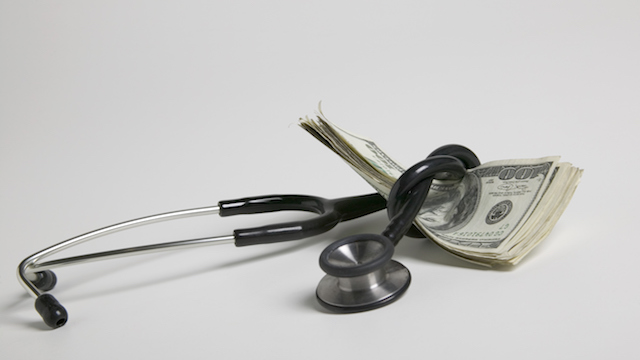 Cardiologists Are In The Top Four Highest Paid Specialties. You're going to kick yourself for not becoming a cardiologist. The average salary for a cardiologist is around $350,000 a year. That's just an average one -- not a really good one. Only Neurosurgeons ($500,000), Orthopaedic Surgeons ($420,000), and Anesthesiologists ($400,000) average more. Check your local medical office for a Maserati. Odds are, that's a cardiologist -- hopefully single.
Cardiologists Are In The Top Four Highest Paid Specialties. You're going to kick yourself for not becoming a cardiologist. The average salary for a cardiologist is around $350,000 a year. That's just an average one -- not a really good one. Only Neurosurgeons ($500,000), Orthopaedic Surgeons ($420,000), and Anesthesiologists ($400,000) average more. Check your local medical office for a Maserati. Odds are, that's a cardiologist -- hopefully single. -
14.
 Your Heart Beats Faster When You're Scared Because You Need The Energy. Part of the fight-or-flight response is to start converting fatty acids into energy -- and fast. Your body secretes all kinds of good stuff to make this happen, and your heart has to shift into overdrive to keep up. It doesn't do this on it's own, though. The adrenal gland gives your heart a chemical kick in the butt, which prompts it to start the emergency pumping. Your heart beats faster when you're in love, for the same reasons -- you need the energy. You brain knows sex something exciting is about to happen.
Your Heart Beats Faster When You're Scared Because You Need The Energy. Part of the fight-or-flight response is to start converting fatty acids into energy -- and fast. Your body secretes all kinds of good stuff to make this happen, and your heart has to shift into overdrive to keep up. It doesn't do this on it's own, though. The adrenal gland gives your heart a chemical kick in the butt, which prompts it to start the emergency pumping. Your heart beats faster when you're in love, for the same reasons -- you need the energy. You brain knows sex something exciting is about to happen. -
15.
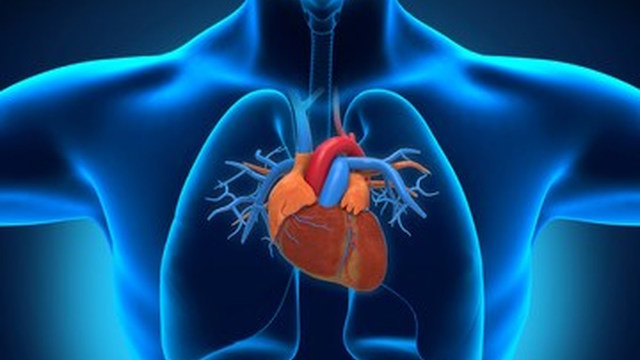 You're Putting Your Hand On The Wrong Part Of Your Chest When You Pledge Allegiance. Contrary to what you've been told, your heart is actually in the center of your chest -- not the left. The shape of your heart is slightly asymmetrical to the left, hence the illusion of being off-center. You feel your heart beating on the left side, because the left heart is many times stronger than the right.
You're Putting Your Hand On The Wrong Part Of Your Chest When You Pledge Allegiance. Contrary to what you've been told, your heart is actually in the center of your chest -- not the left. The shape of your heart is slightly asymmetrical to the left, hence the illusion of being off-center. You feel your heart beating on the left side, because the left heart is many times stronger than the right.
- REPLAY GALLERY
-

- 15 Things You Didn’t Know About Your Heart
- NEXT GALLERY
-

- Odd Questions Asked In Pop Songs
Your Heart Generates Electricity With Salt. It's not quite that simple, but in some ways it is. Electricity from the Sinoatrial node acts as a natural pacemaker, initiating the process of the heart beating. You're not plugged into anything, so where does the juice come from? Electrolytes like sodium, potassium, magnesium, and others build up in the Sinoatrial node and generate chemical reactions. Not unlike a battery, these electrolytes store up and discharge the impulses at will.
15/15
1/15




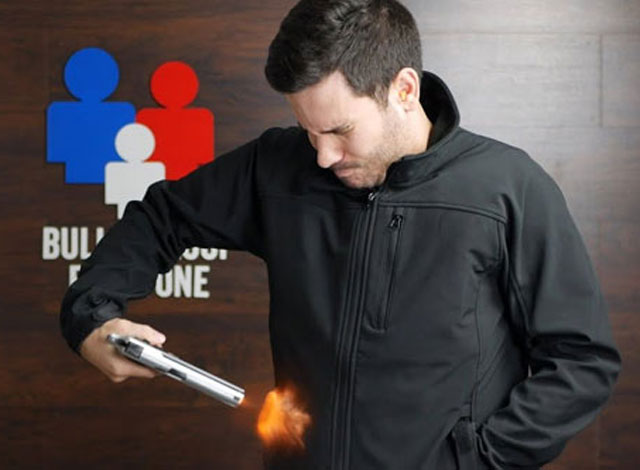


0 Comments